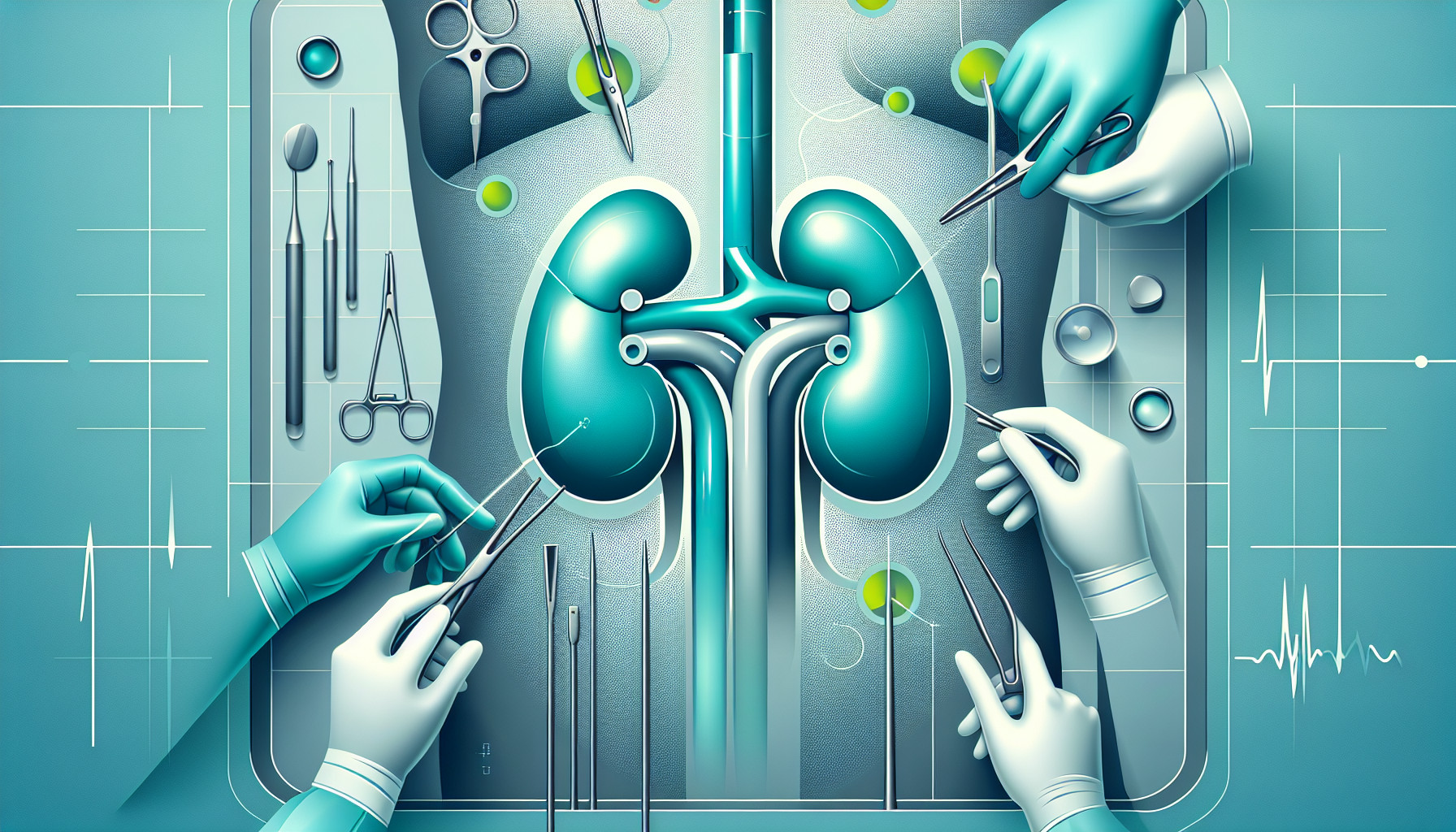Our Summary
This paper is about a study conducted on 22 Japanese children who received kidney transplants due to a disease called focal segmental glomerulosclerosis (FSGS). Some of these kids had a genetic form of the disease, and others developed it without a known cause.
The researchers were particularly interested in a type of protein called nephrin that is found in the kidneys. In the kids who had a recurrence of FSGS after their transplant, the researchers found high levels of antibodies that attack nephrin (anti-nephrin antibodies) in their blood. This suggests that these antibodies may be involved in causing the disease to come back after transplantation.
The researchers also looked at the kidney tissues of these patients and found that the disease seemed to cause changes in the nephrin protein, possibly as a result of the attack by the anti-nephrin antibodies.
In the kids whose FSGS did not come back after the transplant, the levels of anti-nephrin antibodies were similar to those seen in healthy individuals and there were no changes in the nephrin protein in their kidney tissues.
These findings suggest that anti-nephrin antibodies may play a role in causing FSGS to come back after kidney transplantation. However, more research is needed with larger groups of patients and from different ethnic backgrounds to confirm these findings.
FAQs
- What is focal segmental glomerulosclerosis (FSGS) and why did the children in the study receive kidney transplants?
- What is the role of anti-nephrin antibodies in the recurrence of FSGS after kidney transplantation?
- What further research is needed to confirm the findings of this study?
Doctor’s Tip
A helpful tip a doctor might tell a patient about kidney transplant is to closely monitor their kidney function after the transplant and to report any symptoms or changes to their healthcare provider immediately. This can help catch any potential issues early on and prevent complications, such as a recurrence of the original kidney disease. It’s also important for patients to follow their medication regimen as prescribed and to maintain a healthy lifestyle to support their new kidney. Regular follow-up appointments with their transplant team are crucial for long-term success.
Suitable For
Patients who are typically recommended for a kidney transplant are those with end-stage renal disease (ESRD) who have failed other treatments such as dialysis. Common causes of ESRD include diabetes, high blood pressure, glomerulonephritis, and polycystic kidney disease. In the case of FSGS, patients who have recurrent or treatment-resistant disease may be considered for a kidney transplant.
In the study mentioned above, children with FSGS who received kidney transplants were recommended for the procedure due to the severity of their disease and the failure of other treatments to effectively manage their condition. Kidney transplantation is often the best option for patients with ESRD as it offers the best long-term outcomes and quality of life compared to ongoing dialysis treatment. However, the decision to undergo a kidney transplant is made on a case-by-case basis by a multidisciplinary team of healthcare providers who consider the patient’s overall health, medical history, and individual circumstances.
Timeline
Before kidney transplant:
- Patients are diagnosed with end-stage renal disease and undergo dialysis to filter waste and excess fluids from their blood.
- Patients undergo evaluation for kidney transplant eligibility, including blood tests, imaging studies, and psychological assessments.
- Patients are placed on the national transplant waiting list and wait for a suitable donor kidney to become available.
After kidney transplant:
- Patients undergo surgery to receive a healthy donor kidney.
- Patients are closely monitored in the hospital for any complications, such as infections or rejection of the new kidney.
- Patients take immunosuppressive medications to prevent rejection of the new kidney.
- Patients attend regular follow-up appointments with their transplant team to monitor kidney function and adjust medications as needed.
- Patients make lifestyle changes, such as maintaining a healthy diet, staying active, and avoiding smoking and excessive alcohol consumption to support the new kidney’s function.
- Patients may experience improved quality of life, including increased energy levels, improved appetite, and reduced symptoms of kidney failure.
What to Ask Your Doctor
- What is the risk of FSGS recurrence after a kidney transplant?
- Are there any specific tests that can be done to assess the risk of FSGS recurrence?
- How can anti-nephrin antibodies impact the success of a kidney transplant in FSGS patients?
- Are there any preventive measures or treatments available to lower the risk of FSGS recurrence post-transplant?
- What are the potential long-term implications of FSGS recurrence after a kidney transplant?
- How often should FSGS patients who have undergone a kidney transplant be monitored for signs of disease recurrence?
- Are there any specific lifestyle changes or medications that can help manage FSGS and prevent recurrence after a transplant?
- How can genetic factors influence the risk of FSGS recurrence in kidney transplant patients?
- Are there any ongoing clinical trials or research studies investigating new treatments for FSGS recurrence post-transplant?
- What are the success rates of kidney transplants in patients with FSGS compared to other kidney diseases?
Reference
Authors: Shirai Y, Miura K, Ishizuka K, Ando T, Kanda S, Hashimoto J, Hamasaki Y, Hotta K, Ito N, Honda K, Tanabe K, Takano T, Hattori M. Journal: Kidney Int. 2024 Mar;105(3):608-617. doi: 10.1016/j.kint.2023.11.022. Epub 2023 Dec 16. PMID: 38110152
